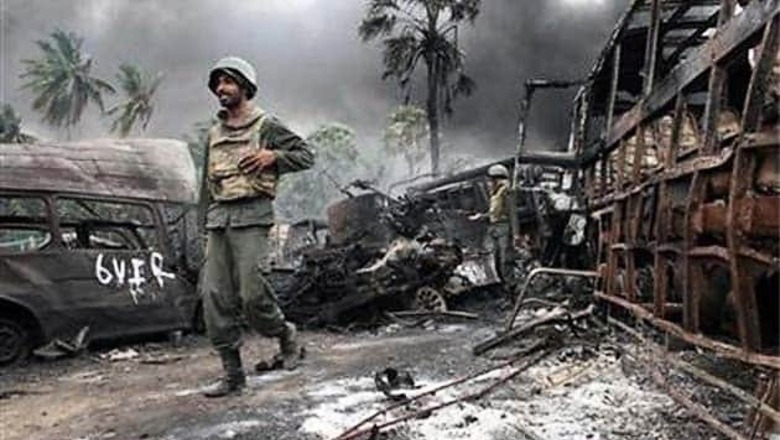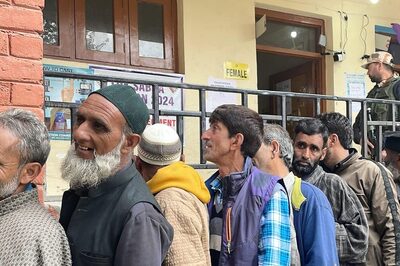
views
United Nations: The United Nations failed to call proper attention to the plight of hundreds of thousands of Sri Lankan civilians during the bloody final stage of the government's war against Tamil Tiger rebels, according to a UN report released on Wednesday.
UN Secretary-General Ban Ki-moon responded to the report by a review panel he set up to evaluate the UN response during the phase of the Sri Lanka war against the Liberation Tigers of Tamil Eelam (LTTE) by saying that the world body needed to take lessons from its findings.
"The report concludes that the United Nations system failed to meet its responsibilities - highlighting, in particular, the roles played by the Secretariat, the agencies and programs of the UN Country Team, and the members of the Security Council and Human Rights Council," Ban said in a statement.
"This finding has profound implications for our work across the world, and I am determined that the United Nations draws the appropriate lessons and does its utmost to earn the confidence of the world's people, especially those caught in conflict who look to the organization for help," he said.
A previous UN report on the war, which ended with the LTTE's defeat in May 2009, said that as many as 40,000 civilians were killed in the last months of the conflict after they were trapped on a narrow strip of coast in northeastern Sri Lanka, caught up in the crossfire between the LTTE and the Army.
The new 128-page report, which focuses on the United Nations' performance during the war, cited the earlier report's casualty estimate as well as government statements that fewer than 10,000 civilians died. It added that some sources cited credible information that over 70,000 were "unaccounted for."
"The panel's report concludes that events in Sri Lanka mark a grave failure of the UN to adequately respond to early warnings and to the evolving situation during the final stages of the conflict and its aftermath, to the detriment of hundreds of thousands of civilians and in contradiction with the principles and responsibilities of the UN," the report said.
"The tone, content and objectives of UNHQ's (headquarters) engagement with member states regarding Sri Lanka were heavily influenced by what it perceived member states wanted to hear, rather than by what member states needed to know if they were to respond," the report said.
NEVER AGAIN
Ban said he would set up a "senior-level team" to consider the panel's recommendations and advise him on future action. "Our obligation to all humanity is to overcome our setbacks, learn from our mistakes, strengthen our responses, and act meaningfully and effectively for the future," he said, adding that "events today in Syria are the latest reminder" of the importance of ensuring that civilians are protected.
The panel also criticised UN member states for not calling a single formal meeting of the Security Council, the Human Rights Council or the 193-nation General Assembly during the final months of the Sri Lanka conflict.
Sri Lanka's government has repeatedly rejected allegations that it committed war crimes at the end of its quarter-century fight against the separatist LTTE rebels. It also rejected suggestions in the report that it had intimidated UN officials.
"No, that's nonsense," Mahinda Samarasinghe, special representative of President Mahinda Rajapaksa on human rights, said in Sri Lanka.
The panel, which was headed by Charles Petrie, a former UN official, said its findings and recommendations "provide an urgent and compelling platform for action."
"The UN's failure to adequately respond to events like those that occurred in Sri Lanka should not happen again," it concluded. "When confronted by similar situations, the UN must be able to meet a much higher standard in fulfilling its protection and humanitarian responsibilities."
It is not the first time the world body has criticized itself for failing to protect civilians during a conflict. The United Nations reached similar conclusions after it failed to act during the 1994 genocide in Rwanda and the 1995 massacre of thousands of Muslim men and boys in Srebrenica, Bosnia.
The panel looked closely at UN decisions not to release information on civilian deaths in 2009 that it had painstakingly gathered in Sri Lanka. The report said that in March 2009 UN officials briefed the diplomatic corps in Colombo about the thousands of civilians killed by the army
The report said UN human rights chief Navi Pillay wanted to make the information public and prepared a statement on it. But Ban's chief of staff Kim Won-soo, UN humanitarian chief John Holmes and the UN resident coordinator in Colombo wrote to Pillay "urging that the statement be changed to exclude specific reference to the number of casualties and possible crimes and violations of international law by the government," it said.
The office of UN political affairs chief Lynn Pascoe, however, supported Pillay's statement, which she issued without major changes. "The UN issued many public statements and reports accusing the LTTE of committing human rights and international humanitarian law violations, and mentioning thousands of civilians killed," the report said.
"But, with the above exception, the UN almost completely omitted to explicitly mention Government responsibility for violations of international law," it added.
The panel said UN officials justified this policy by saying they did not want to jeopardize humanitarian access. "The UN internal review identifies the tragic mistakes that led the UN to fail in its most basic obligations to civilians in Sri Lanka," said Philippe Bolopion of Human Rights Watch. "It is a call to action and reform for the entire UN system."




















Comments
0 comment